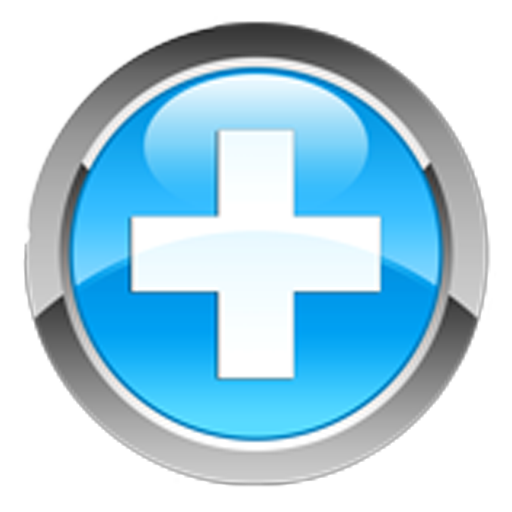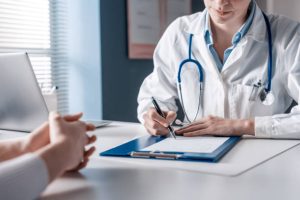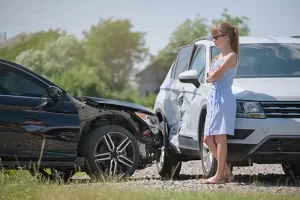After a car accident, your health should be your number one priority, not worrying about medical bills. The good news? In many cases, you can get the treatment you need without paying anything upfront or out of pocket.
Here’s how it works and what you need to know.
🏥 See the Right Type of Doctor After an Accident
After a car accident, not every doctor is equipped or willing to treat your injuries. While your primary care physician is great for general health, they may not handle auto accident claims, work with attorneys, or know what kind if documentation is required.
That’s why you need to choose a personal injury or accident doctor who specializes in treating accident-related injuries and knows the billing process.
What Makes a Personal Injury Doctor Different?
- Specialized Training: They’re familiar with injuries like whiplash, herniated discs, concussions, and soft tissue damage that often don’t appear on X-RAYS but can cause long-term issues.
- Experience With Accident Documentation: They know exactly how to record your injuries, treatment plan, and prognosis so your medical records hold up in a legal case.
- Insurance & Lien Billing: They accept PIP, MedPay, auto insurance, attorney liens, or Letters of Protection, meaning you can get treated now without paying upfront.
- Attorney Collaboration: They regularly work with personal injury lawyers to coordinate care, send updates, and ensure your bills are covered in your settlement.

Types of Accident Doctors You Might See:
- 🚑 Emergency Room Physicians – for life-threatening injuries right after the crash.
- 💆 Chiropractors – for spinal alignment, whiplash, and musculoskeletal issues.
- 🩺 Orthopedic Specialists – for bone, joint, and soft tissue injuries.
- 🧠 Neurologists – for head, brain, and nerve-related injuries.
- 🏋️♂️ Physical Therapists – for rehabilitation and regaining mobility.
💡 Pro Tip: When you call to make an appointment, ask, “Do you accept auto accident cases and bill PIP, MedPay, or attorney liens?” This will save you time and prevent surprise bills.
💳 Use Your PIP or MedPay Coverage First

One of the easiest ways to get medical treatment with no out-of-pocket expense after a car accident is by using your Personal Injury Protection (PIP) or Medical Payments (MedPay) coverage. These are add-ons to your auto insurance that cover your accident-related medical bills without requiring you to pay upfront.
How PIP and MedPay Work:
- Personal Injury Protection (PIP): Covers your medical expenses and may also pay for lost wages, rehab costs, and other accident-related expenses depending on the State.
- Medical Payments (MedPay): Covers medical bills for you and your passengers, regardless of fault. It doesn’t cover lost wages, but it’s usually available in most States.
The Best Part: You can use this coverage even if you were at fault for the accident.
📌 Benefits of Using PIP or MedPay
- Immediate Coverage: No need to wait for a lawsuit or settlement before getting care.
- No Fault Needed: You’re covered whether or not the other driver caused the accident.
- No Deductible for Most Policies: Many PIP and MedPay plans don’t require you to meet a deductible before coverage kicks in.
- Peace of Mind: You can focus on recovery without stressing about medical bills stacking up.
⏱ Don’t Wait to File Your Claim
Insurance companies set strict deadlines for filing PIP or MedPay claims, sometimes as short as 14 days after your accident.
📞 Pro Tip: Call your auto insurance provider as soon as possible after the crash and ask:
- Do I have PIP or MedPay coverage?
- What is my policy limit?
- What is the filing deadline for claims?
⚠️ What Happens If Your PIP or MedPay Runs Out?
If your treatment costs exceed your policy limits, you still have options to avoid paying out of pocket:
- Your health insurance may cover additional expenses.
- You can work with an attorney to arrange treatment on a lien or Letter of Protection.
- Your accident doctor may coordinate directly with the at-fault driver’s insurance for payment after your case is resolved.
📜 Medical Liens & Letters of Protection (LOP)
If you don’t have PIP or MedPay, or if your coverage runs out before you finish treatment, you still have a powerful option to get care without paying anything upfront, medical liens and Letters of Protection.
These are common in personal injury cases and allow you to get necessary medical treatment now, with payment deferred until your case is settled.
🔹 What Is a Medical Lien?
A medical lien is a legal agreement between you, your doctor, and your attorney (if you have one) stating that the doctor will treat you now and be paid later from your settlement or verdict.
Benefits:
- Zero upfront costs for treatment.
- Access to high-quality medical care without worrying about immediate payment.
- Protects your credit by keeping unpaid bills off your record during treatment.

🔹 What Is a Letter of Protection (LOP)?
A Letter of Protection is issued by your attorney to your medical provider. It guarantees that when your personal injury case settles, the provider will receive payment directly from your settlement.
How It Works:
- Your attorney sends a written promise to the doctor that their bill will be paid from your case proceeds.
- You get treated right away, no waiting for insurance approval.
- When your case is over, your attorney pays the doctor from the settlement before you receive your portion.
📌 Why Liens & LOPs Are Helpful After an Accident
- Immediate Care Access: You don’t have to delay treatment due to lack of funds or insurance coverage.
- Keeps Cases Strong: Continuous treatment shows the insurance company you took your injuries seriously.
- Covers Specialists: You can see chiropractors, orthopedic surgeons, neurologists, or physical therapists without paying upfront.
⚠️ Important Considerations
- You’ll still need to pay the provider from your settlement if you win, these agreements are not “free care.”
- If you lose your case, you could still be responsible for the bill (though some doctors may negotiate lower amounts in this situation).
- Always review the terms of a lien or LOP before signing so you understand repayment expectations.
💡 Pro Tip: Many accident doctors work regularly with attorneys and already have lien/LOP systems in place, making the process smooth and stress-free.
⚖️ How an Attorney Can Help You Get Treated for $0 Upfront
While you can see a doctor without a lawyer, having an experienced personal injury attorney on your side can make the process of getting no-upfront-cost medical care smoother, faster, and less stressful.
Attorneys who handle accident cases know exactly how to connect you with the right doctors, negotiate with insurance companies, and protect you from costly mistakes.
🔹 Connecting You to the Right Medical Providers
Many accident doctors only accept patients through attorney referrals, especially those who work on a medical lien or Letter of Protection basis.
Your lawyer likely already has a network of:
- Chiropractors for spinal and whiplash injuries.
- Orthopedic surgeons for bone and joint damage.
- Neurologists for head and nerve injuries.
- Physical therapists for rehabilitation.

By using this network, you can get treated right away without having to search for a provider who will work without upfront payment.
🔹 Handling All Insurance Communications
Insurance companies often try to:
- Limit the type or length of treatment you can get.
- Argue your injuries are “pre-existing” or unrelated to the accident.
- Offer quick but low settlements that don’t cover your ongoing care.
An attorney steps in as your advocate ensuring your medical needs are fully documented and included in your claim so you get the treatment you require and the settlement you deserve.
🔹 Arranging Payment Through Liens or LOPs
Your lawyer can:
- Negotiate lien or LOP agreements with your doctor.
- Ensure the terms are fair and clearly outlined.
- Make sure your providers are paid directly from your settlement, so you don’t have to handle billing headaches.
📌 Benefits of Having an Attorney for Accident Medical Care
- Streamlined Process: No chasing down paperwork or figuring out insurance forms.
- Fewer Delays: Treatment starts quickly because your lawyer sets up the payment agreement.
- Better Settlement: Thorough medical documentation strengthens your case, often leading to higher compensation.
💡 Pro Tip: Even if you’re unsure about hiring a lawyer long-term, consulting one immediately after your accident can help you secure treatment options you might not otherwise have access to.
⏱ Don’t Delay Medical Treatment
Every day you wait to see a doctor after an accident gives the insurance company an excuse to deny or reduce your claim.
Risks of Delaying Treatment:
- Hidden injuries (like whiplash or a concussion) can worsen.
- Creates a “gap in treatment” that insurance companies may use against you.
- Weakens your legal and medical documentation.
🚑 Rule of thumb: Get evaluated within 24–72 hours of your accident—even if you feel fine.
📌 Key Takeaways
- ✅ See a personal injury doctor who accepts PIP, MedPay, liens, or LOPs.
- ✅ Use your auto insurance benefits first before touching your wallet.
- ✅ If needed, work with an attorney to arrange treatment with no upfront cost.
- ✅ Don’t wait, early treatment protects your health and your injury claim.
❓ FAQ: No Out-of-Pocket Accident Treatment
Do I need health insurance to get treated after a car accident?
No, PIP, MedPay, or lien-based care can cover you even without health insurance. Most health insurance companies don’t cover accident related treatment anyway.
What if I’m at fault for the accident?
PIP and MedPay often cover your injuries regardless of fault. In at-fault states without PIP, you may still use MedPay or work with your doctor on a lien.
Can I choose my own doctor?
Yes, but make sure they accept accident cases and can bill the appropriate insurance or lien.
Do I have to hire a lawyer to get lien or LOP treatment?
Not always, but many providers prefer working through attorneys for lien and LOP cases because it ensures payment. Having a lawyer often makes it easier to access these options.
What if I don’t have auto insurance (med pay or pip)?
You may still be able to get treated on a medical lien or Letter of Protection if you have a personal injury claim. Your attorney can help arrange this.


 Connecting Accident Victims with Trusted Injury Doctors Since 2012
Connecting Accident Victims with Trusted Injury Doctors Since 2012



